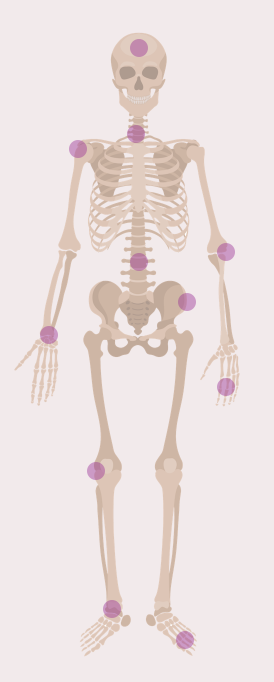Brain & Neurological Testing
Your nervous system is vital to the health and function of your entire body. The central nervous system is made up of areas of your brain and spinal cord, and it controls every single thing that happens in your body, from your heart beating to your stomach digesting food to your legs walking. Most people have pretty good nervous system health, but sometimes, things can go awry and your body may need some help getting back on track.
The most common reason for an individual to undergo brain and neurological testing is that they’ve experienced some type of trauma, such as a car accident, major fall, or a concussion. Brain and neurological testing allows doctors to explore your body’s complete function, all of which is directed by the brain and neurological system. Any concerns that come up during tests like these will allow doctors to further examine certain components of your body or neurological function, leading to a proper diagnosis and a better treatment plan for you.
Another common reason to have brain and neurological testing done is if you have a disease that needs to be monitored. Some diseases can wreak havoc on the nervous system, and neurological testing can determine the progression of your disease so that doctors can determine the efficacy of the medication you’re on and reevaluate your care plan if necessary.
The Job of a Neurologist

- Amyotrophic Lateral Sclerosis (ALS)
- Multiple sclerosis (MS)
- Strokes
- Epilepsy
- Speech and language disorders
- Seizures
- Parkinson’s
- Alzheimer’s
Neurological exams are typically conducted during a routine physical exam, following any type of trauma, to measure the progression of a disease or other related symptoms occurring in your body. The types of procedures conducted depends on the symptoms you have. Typically, the least invasive are conducted first to rule out the most common issues. We have Atlanta’s most highly recommended orthopedic doctors and specialists on our staff at AICA Orthopedics who are equipped, experienced, and more than capable of diagnosing any brain and neurological issues you may be facing.



The 7 Components of Neurological Tests
Brain and neurological testing is incredibly important for many people, and here at AICA Orthopedics, our specialists are incredibly thorough when performing complete neurological exams. We utilize seven different components as we go through a multitude of tests to evaluate your neurological health and function.
- Mental Status – This component relates to the patient’s awareness of his or her surroundings, including their interaction with those around them and their knowledge of who they are, where they are, and the like. Speech is included in this part of the exam, as doctors will listen to ensure patients are speaking clearly and making sense as they talk.
- Cranial Nerves – There are 12 major nerves in the brain called the cranial nerves. Each has a different function and each will be tested in its own way during a standard brain and neurological exam.
- Motor System – Motor function will be tested by having the patient push or pull against the provider’s hands, and balance will be examined as well. Joints may also be tested for general strength here as well.
- Sensory System – This part of the neurological test will explore the patient’s ability to feel different sensations in different areas of their body. A variety of instruments may be utilized so that patients are tested with feelings of cold, hot, sharp, dull, and more.
- Reflexes – Patients’ reflexes will be tested, usually with a reflex hammer. Depending on the age of the patient, different techniques may be used to examine the reflexes and determine how well they work.
- Coordination – Proper coordination is a key component of a healthy brain and neurological system. A doctor may utilize a number of different coordination tests to explore this area of brain health, such as walking on a line on the floor or touching something on their body with their eyes closed.
- Gait – The way you walk can tell a doctor a lot about the health of your brain and neurological system, so you may be asked to walk in place, walk on a line, or simply walk down a hallway. You may be required to close your eyes while walking in place or undergo different balance and gait tests.
What Happens After a Neurological Exam?
After your doctor completes your neurological test, he or she will analyze and interpret the results. If a diagnosis or reevaluation of a prior diagnosis is next, you will meet with your doctor to discuss it. If your testing was done as a progress report of a disease, you will learn about the next steps to take to improve your health and nervous system function.
More tests may be needed depending on the results of the brain and neurological testing, which may include measurement of electrical activity in the brain (electroencephalography, EEG), muscle activity (electromyography, EMG) or nerve conductivity (electroneurography, ENoG). Imaging techniques such as ultrasound, computed tomography (CT), or magnetic resonance imaging (MRI) may also be used. Sometimes a lumbar puncture (spinal tap) is necessary to take a sample of your cerebrospinal fluid (CSF). Your next steps after a neurological exam will be based on your doctor’s recommendations and the care plan set forth by our team of physicians.
Contact AICA Orthopedics Today
For more information about neurological testing and other nerve concerns you may have, come visit AICS Orthopedics at any of our many facilities across metro Atlanta or give us a call and a team member can point you in the right direction.
